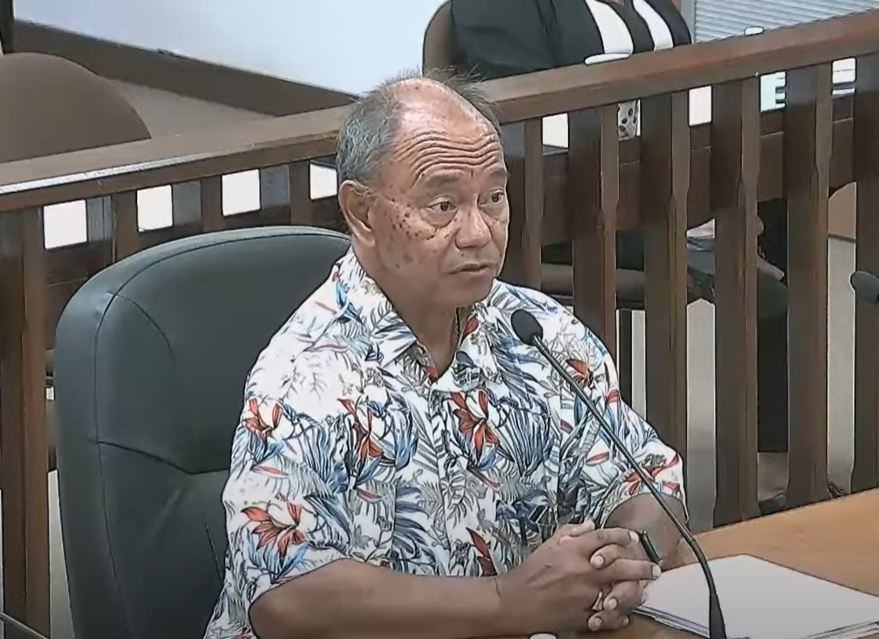
Simon Sanchez
TO reduce its dependency on a single supplier, the Commonwealth Utilities Corporation should have its own fuel tank farms, CUC board member Simon Sanchez said.
Sanchez is also a member of Guam’s Consolidated Commission on Utilities, an elected board that oversees the operations of the Guam Power Authority and the Guam Waterworks Authority.
During a CUC board meeting on Monday, he mentioned the possibility of CUC owning its own fuel tank farms after learning that Mobil, CUC’s fuel supplier, does not want to publicly disclose the Mean of Platts of Singapore or MOPS pricing it charges CUC for fuel.
“Is this because we only buy from one supplier [so] CUC does not own a fuel tank?” Sanchez asked.
“We [CUC] should consider owning our own fuel tanks, and we could put out bids and attract other fuel suppliers [instead of having] just one,” he added.
CUC Chief Financial Officer Betty Terlaje earlier told the board that she could not share Mobil’s MOPS prices.
“They’re proprietary and confidential. We asked before, and they told us they’re proprietary, and we could not share their MOPS prices,” Terlaje said.
MOPS represents the average of a set of Singapore-based oil product price assessments published by Platts, a division of S&P Global.
The current price of SGX Platts Singapore Fuel Oil 380cSt is $384.39 per metric ton.
“Mobil provides us with fuel pricing so that we can identify what our fuel rate would be,” Terlaje said.
Sanchez said CUC acquiring its own fuel tank farms is “something that we cannot solve today, but that is something that we as a board and management [should] think about.”
He said they should “consider…what would it take to control our own CUC fuel tank.”
He said in Guam, “we own some and we lease some. But the point is, it’s our tanks. And then we put it out for bid, we have Mobil, we have Shell, British Petroleum, we have a number of suppliers over the…years. We’re not stuck with one supplier, who kind of controls the ‘spigot’ and does not even tell you their [MOPS] price. That does not make sense.”
Terlaje agreed. “That’s a great idea,” she said. “I am asking the same question…. Maybe that is the reason why other suppliers submitting bids are having a difficult time because we don’t have our own fuel tank farm.”
In her presentation to the board on Monday, Terlaje also noted that among U.S.-affiliated islands in the Pacific, including Guam, the CNMI has the lowest power rates.
According to news files, CUC had two fuel tanks that could accommodate 12,000 barrels of diesel each. CUC’s bigger tanks were shut down due to environmental and health concerns.











